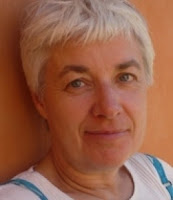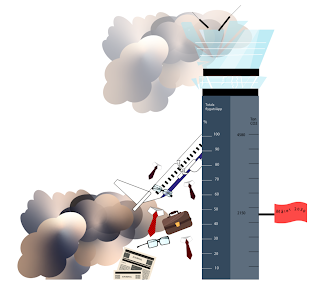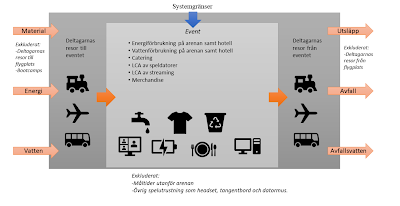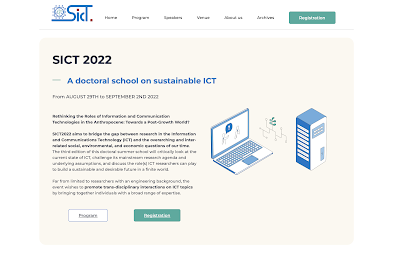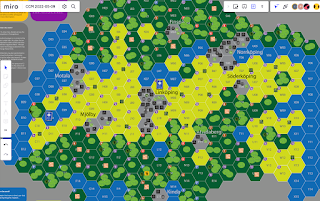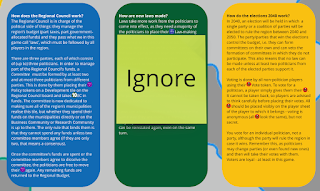.
THIS IS BLOG POST #600!
This is also unfortunately a testament to the fact that I haven't blogged very much during the last few years because blog post #500 was published way back in January 2018. That's more than four years ago (while the gap between #400 and #500 was instead less than 18 months). I certainly hope blog post #700 will be published before the end of 2023 rather than at the end of 2025...
These centennial blog posts have been an occasion to stop, reflect and write a text about writing texts, but I won't do that this time. Since it's the end of the month I will instead (just as I did a month ago) do a roundup of things that happened in May that didn't merit full blog posts of their own (but that could have).
May Roundup
An overarching purpose for all teaching is to facilitate connections between the content and each individual student. When it comes to climate change, it is a challenging topic for both teachers and students, due to the magnitude of the problem and the existential threat. In order to address the subject, but avoid simplistic approaches or defensive responses like denial, Drama for Learning seems promising.
From the global dimension to the individual
The core idea with this drama workshop is to address the Big Issue of Sustainability with open eyes and mind without diminishing the scale of the problem – and avoid feelings of hopelessness or psychological defences. Another purpose is to explore the global – individual dimension, and begin to sort out questions of accountability. What is possible for a single person to do, and what requires decisions on a political level? The intention is that all participants acknowledge the global threats, stay open for individual responses in terms of thoughts and feelings, become more aware of systemic challenges, and still find energy to consider choices and actions within their own reach.
The workshop is designed for university students/adults with no previous drama experience, and will take 3 hours. To address the content, no specialist knowledge is needed, although it is possible to qualify the discussions by having students prepare (lectures, readings) on the topic.
- Collective rhizomatic analysis workshop (May 14)
Eva Österlind's phd. student Julia Fries participated in and taught in the autumn 2021 two-day course I wrote about (above), and she invited me to participate in an experiment/workshop, a "collective rhizomatic analysis" (with inspiration from Deleuze and Guattari). A dozen researchers participated in the workshop of which half had a drama background and the other half had a sustainability background.
It was a fun, but also a strange workshop where Julia both presented material she had previously collected but also used the workshop itself to collect new material. She even invited workshop participants to become co-authors of a future article. (I declined because I have too much to do and didn't understand what exactly the topic of the article would be and how I could contribute.)
An interesting coincidence is that her thinking have many points in common with our research project Beyond the Event Horizon (that I have recently written about on the blog here and here), e.g. of using methods from drama to imagine a better more sustainable future as something that we have already attained and then explore and probe what that results in in terms of both thoughts and feelings.
Julia's advisor, Eva Östergren (see above) also participated in the workshop but took the role of an observer.
- Stand-up final exam (May 15)
I have previously written about the course in stand-up comedy I have taken during the spring and as all things must come to an end, so too did this. It ended with a final exam where we performed on stage in front of invited guests that we (the course participants) ourselves had invited.
I asked at the second to last occasion and the teacher said that we should invite as many as we could, since we would never have a better and more kind audience who would want nothing but to support us by laughing at us. So three days before the show I went bananas and invited lots and lots of people. There were thus 20 persons in the audience who came there because of me and they might in fact have constituted the major part of the audience!
It was great but also very different from the kind of talking I'm used to (lectures and seminars) and I learned so much. I have since listened to stand-up at Big Ben, a pub that has stand-up every day of the week and where I will stand on the stage after the summer (I was inspired after visiting them and I have already written new material for that occasion)!
I have also participated in another event twice in May, "public speaking". It has nothing to do with stand-up but still shares characteristics and it's organized every Sunday in central Stockholm (including during the summer!).
- Universities total climate footprint - walking the talk (May 19)
- The invisible dinosaur (May 22)
- Decreased CO2 emissions from researchers' flying - what could Formas do? (May 30)
This is a talk that has been long in the making! I can track mails about this talk more than two years back, but the proposed talk was postponed several times due to Covid complications. We picked up the thread again and started to plan for the talk three months ago, back in February! Perhaps it was good that we waited because we nowadays don't just have intriguing results, but in fact also a message and perhaps even a challenge for Formas.
Formas is a government research council for sustainable development. They hand out 1800 MSEK per year (1 SEK ≈ 0.1 € / 0.1 $) and has a portfolio of ≈ 2000 ongoing research projects. We love the fact that they support research, but since (some) research is carbon intensive (because researchers fly a lot), we suggested Formas should do their part to reduce the CO2 footprint of research. So we suggested they should ask for a CO2 budget for travel when researchers submit grant applications. Formas would then be able to calculate a new metric (CO2/MSEK) for how research funds they hand out is used and take that into account when they evaluate the research grant applications. Just asking for an estimate would most probably have a self-cleansing effect among sustainability researchers asking for funds to support sustainability research.
There is in fact a great example of this already happening since the large research programme Mistra Sustainable Consumption have formulated a climate target for travel, e.g. the emissions from travel should not exceed 0.5 tons of CO2e per full-time equivalent per year. It's 2022 and all (sustainability) research should be able to do the same!
- Bureaucrat mingle (May 30)
I thought it was hilarious when my union sent me an invitation for a "bureaucrat mingle". Since KTH is not only a university but also formally a governmental agency, I am employed by the state and can thus pass as a bureaucrat. I wanted to check out other bureaucrats and see if they (we!) were as boring as they (we!) are reputed to be.
My verdict is partly "yes" in terms of interests (many people knew a lot of rules), but they were also very interesting and the event was nice. A well known Swedish historian, Gunnar Wetterberg, gave a talk where he lauded bureaucrats. The union handed out a small booklet that he had written, "The bureaucrat's ten key words", and the key words were: 1) In the citizens' best interest, 2) Reflection and development, 3) Competence and knowledge, 4) Curious, 5) Brave, 6) Independent, 7) Integrity, 8) Legal certainty/rule of law, 9) Good judgement and 10) Responsibility.
- Last SF Lab meeting for the spring term (May 31)
We had our 10th and last team/research group lunch meeting on May 31. We would surely have had another meeting if not for the fact that many of us will be at a conference in Bulgaria in mid-June.
We changed our name from MID4S to SF Lab this spring! We had grown out of "Media Technology and Interaction Design for Sustainability" and are now instead the "Sustainable Futures Lab"! Also, we are at the cusp of announcing our new blog (see image above).
Here is a very short summary of the spring term in the form of a list of the many great guests we had who visited us and gave talks at our team meetings:
- Martin Lindrup (PhD student at the Computer Science Department, Human-Centred Computing group, Aalborg University, Denmark) talked about "Insights about meaningful data in environmentally sustainable food consumption".
- Eva Österlind (Professor in Applied Drama, Department of Teaching and Learning, Stockholm University) talked about "Teaching for Sustainability in Higher Education - Interactive Drama Workshops".
- Emile Roch & Daphné Hamilton-Jones (Master Students in Design Research at the Ecole Normale Supérieure Paris Saclay, Télecom Paris (Institut Polytechnique) and ENSCI Les Ateliers) talked about "Exploring Co-design for Sustainibility through Design Fiction"
- Ola Leifler (PhD, Linköping University, Department of Computer Science) talked about "Reorientating an academic career to become an agent for meaningful change to societal transformation".
- Katka Katerina Cerna (Senior lecture at MDI/Applied IT, Gothenburg University) talked about "Co-design of enabling entanglements: fostering connection between people through (plant) care and sensing technology"
- Books I've read
This is yet another month when I only had time to read two books. This is less than I usually read but I again have to blame stand-up comedy. It really took a lot of my time and in particular the time when I commute. I usually reserve that time for reading, but have spent the last month thinking about stand-up, memorizing and revising stand-up texts, practicing my stand-up performance in my head and so on. The two book I read in May were anyway:
- Helen Pluckrose & James Lindsay (2020). Cynical theories: How activist scholarship made everything about race, gender and identity.
- Peter Boghossian & James Lindsay (2019). How to have impossible conversations: A very practical guide.
.

